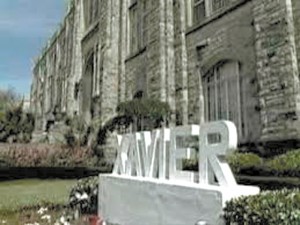HBCUs generate $14.8 billion in economic impact
4th December 2017 · 0 Comments
By Stacy M. Brown
Contributing Writer
Louisiana’s HBCUs provide a total economic impact of $923 million on the state
(NNPA Newswire) — Historically Black Colleges and Universities (HBCUs) generate $14.8 billion in economic impact annually, according to a stunning new report by the United Negro College Fund (UNCF).
The landmark study titled, “HBCUs Make America Strong: The Positive Economic Impact of Historically Black Colleges and Universities,” said that public HBCUs account for $9.6 billion of that total economic impact, while private HBCUs account for $5.2 billion.
“The estimate includes direct spending by HBCUs on faculty, employees, academic programs and operations, and by students attending the institutions, as well as the follow-on effects of that spending,” the report said.
The combined economic impact is equivalent to a top 200 ranking on the Fortune 500 list of America’s largest corporations.
“The presence of an HBCU means a boost to economic activity, on and off—and even well beyond—campus. Stronger growth, stronger communities, more jobs and a more talented workforce,” UNCF authors wrote in the report.
According to the UNCF report, Howard University generates $1.5 billion in total economic impact and 9,591 jobs for its local and regional economies.
“Every dollar spent by Howard University and its students produces positive economic benefits, generating $1.58 in initial and subsequent spending for its local and regional economies.
The study, conducted by the University of Georgia’s Terry College of Business Selig Center for Economic Growth, found that Hampton University generated $270 million in total economic impact and 2,249 jobs for its local and regional economies.
“For each job created on campus, another 1.7 public-and private-sector jobs are created off campus because of Hampton University-related spending,” study said. “Looked at in a different way: Each $1 million initially spent by Hampton University and its students creates 11 jobs.”
While Morehouse College generated a total economic impact of $188 million and 1,580 jobs. Spelman College accounted for $199 million in total economic impact and 1,625 jobs.
North Carolina A&T State University generated $488 million in total economic impact and 4,325 jobs for its local and regional economies.
“It’s the first time that we’ve had a study conducted by such a professional institution to recognize the importance of HBCUs and particularly the impact on our community,” Miles College President Dr. George T. French, Jr., told the NNPA Newswire. “We’ve talked in general terms, but to quantify this is important so that our partners can understand the value of our institution. It’s a win-win for our region and for government partners who look to partner with us.”
The report revealed that the 1,634-student Alabama school generated $67 million for its local region. Each $1 million initially spent by Miles College and its students creates 16 jobs, according to the report.
“It’s eye-opening and, in addition to the 730 jobs created, there’s a 1-to-1 match for every full-time job at Miles, we create another job in our region,” French said. “So, we have about 377 employees on campus, but because of that, we’ve created 350 off-campus jobs.”
The benefits flow to Miles College’s graduates, who’ll enter the workforce with sharper skills and vastly enhanced earning prospects, according to the report.
HBCUs in Louisiana, which includes Dillard University, Grambling State University, Southern University and A&M College, Southern University at New Orleans, Southern University at Shreveport and Xavier University of Louisiana, have a total economic impact of $923 million on the state, according to the report.
That total includes direct spending by the universities on faculty, employees, academic programs, operations and spending by the universities’ students as well as the “follow-on effects of that spending,” according to the report.
“Every dollar in initial spending by Louisiana’s HBCUs generates $1.39 in initial and successive spending,” the report states. In other words, each dollar spent generates an additional 39 cents for local and regional economies.
In terms of employment, the report states that Louisiana HBCUs generate 8,454 jobs locally and regionally, 3,578 of which are on campus and 4,876 off campus.
According to the report, 1.4 off-campus public- and private-sector jobs are created for each on-campus job created at an HBCU, resulting from HBCU-related spending. “Each $1 million initially spent by a Louisiana HBCU and its students creates 13 jobs,” the report states.
Lifetime earnings for graduates of HBCUs reportedly total $9.4 billion. Individually, Louisiana HBCU graduates working full-time throughout his or her working life can expect to earn $910,00 in additional income due to a college credential, the report states.
“With this study, we can go to the government and say we need additional money for cutting-edge programs and recruitment,” he said. “We’ve requested and will have a meeting with the city to compare our master plan with what the city is doing. Here we are, this economic engine with a $52 million annual budget and we can help this city with its master planning and their master plan may intersect with what we’re doing.”
This article originally published in the December 4, 2017 print edition of The Louisiana Weekly newspaper.



